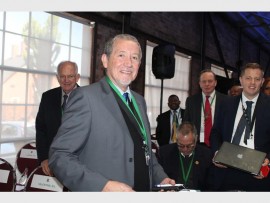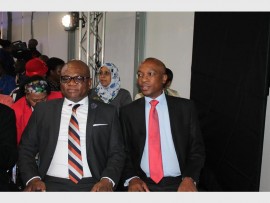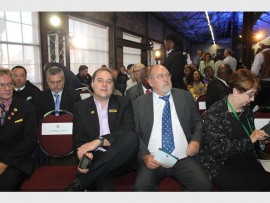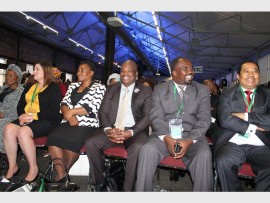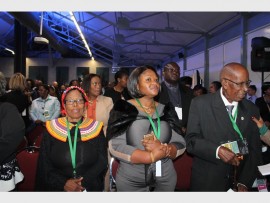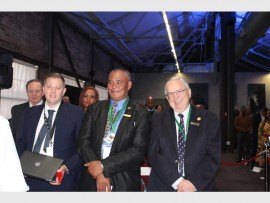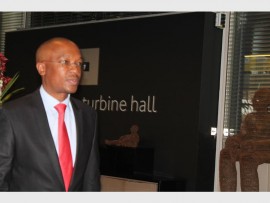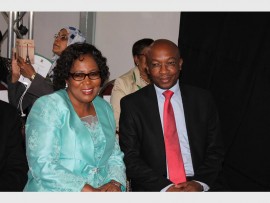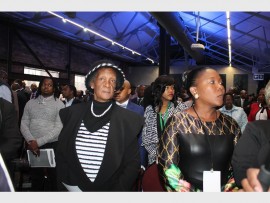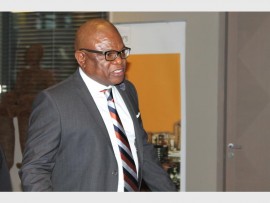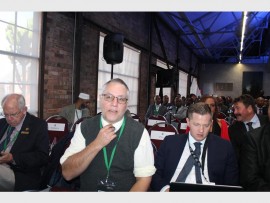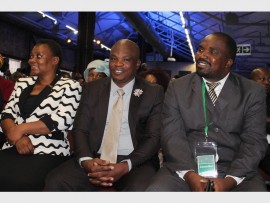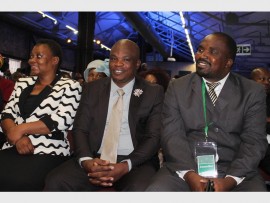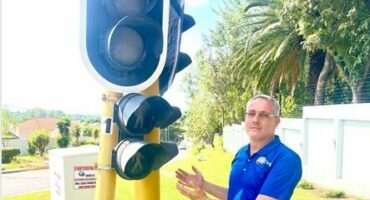
As the Johannesburg City Council marks the end of the political term of the current administration, Member of the Mayoral Committee (MMC) for Finance in the City of Johannesburg, Geoffrey Makhubo made sure he blew the City’s horn when he delivered the last budget speech at Turbine Hall in Newtown on 24 May.
In his opening remarks, Makhubo said the City had delivered on all commitments made in 2011. Adding to the successes that he put on the table, he said the recent upgrade that the City Council received from Moody’s Rating Agency was an affirmation that the entity was in good hands and all finances were in order.
Read: MMC of Finance lays out Joburg’s budget
In presenting the R54.8-billion budget Makhubo said, “I can say today without fear of contradiction that we have delivered and this view is shared by a wide range of rating agencies, analysts and investors.”
Before giving an overview of how the budget will be spread across different departments, Makhubo went to great lengths explaining some of the challenges facing Joburg, including the huge influx of people that come into the city every month.
Getting to the business of the day, the MMC started on a positive note with good news for most residents, especially pensioners and low-income earners. He said that the City would provide relief to residents in excess of R1-billion annually which, among other things, will include a 100 percent rebate for pensioners who own a house worth R2 million or less.
He also announced that the first R200 000 of the value of all residential properties would be exempt from rates. Child-headed households with property values not exceeding R2-million would also receive a 100 percent rebate.
However, residents will be hit hard come July as the cost of most services will increase.
Property rate tariffs will increase by 5.9 percent and electricity will increase by 6.94 percent but Makhubo was adamant that the increases were not something to complain about as they were below the latest inflation rate and lower than average tariff increases as proposed by the National Energy Regulator of South Africa.
On some of the budget allocations, the housing department received R1.1 billion in the 2016/17 financial year and a multi-year budget allocation of R3.4 billion over the medium term budget. The budget allocation will see key projects such as the development of bulk infrastructure to ensure sustained momentum in some areas such as the Diepsloot Redevelopment.
Read: Election date proclaimed
City Power has been allocated an operating budget of R16.7 billion for 2016/17 and a multi-year capital budget of R3.9 billion. Among other projects, Makhubo stipulated that the money would assist the power utility in rolling out prepaid and smart meters which would, in return, protect the City’s revenue streams.
Part of City Power’s budget allocation will also go to electrification projects in some informal settlements.
The health department received an operating budget of R775-million for the next financial year and a three-year capital budget of R361-million. Makhubo said the money would be used to respond to primary health care and the rollout of an electronic health system. He also mentioned that the money would be used in rolling out new projects, including the Rosebank Clinic.
In his closing remarks, Makhubo thanked officials who had made service delivery possible in the City of Johannesburg. “You can trust us to deliver. This is a budget for all the people of Johannesburg. This is our plan to transform society. Together we are building a better Joburg.”
